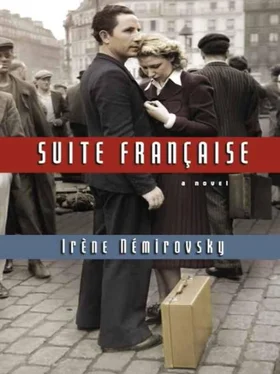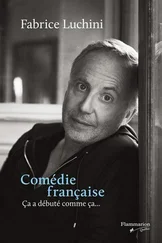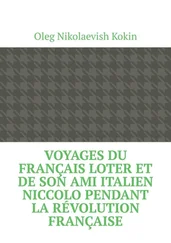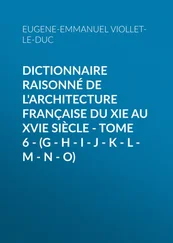And the most horrible thing was that he couldn't ignore the sacrifices, the heroism, the kindness of some. Philippe, for example, was a saint; these soldiers who'd had nothing to eat or drink (the supply officer had left that morning but hadn't returned in time) going to do battle for a hopeless cause, they were heroes. There was courage, self-sacrifice, love among these men, but that was frightening too: even goodness was predestined, according to Philippe. Whenever Philippe spoke, he seemed both enlightened and passionate at the same time, as if lit up by a very pure flame. But Hubert had serious doubts about religion and Philippe was far away. The outside world was incoherent and hideous, painted in the colours of hell, a hell Jesus never could enter, Hubert thought, "because they would tear him to pieces."
Machine-guns fired on the convoy. Death was gliding across the sky and suddenly plunged down from the heavens, wings outstretched, steel beak firing on this long line of trembling black insects crawling along the road. Everyone threw themselves to the ground; women lay on top of their children to protect them. When the firing stopped, deep furrows were left in the crowd, like wheat after a storm when the fallen stems form close, deep trenches. Only when it had been quiet for a few moments could you hear the cries and moans: people calling to one another, moans that went ignored, cries shouted out in vain…
The refugees got back into the cars they'd left beside the road and started off again, but some of the cars remained abandoned, their doors open, baggage still tied to the roof, a wheel in the ditch where the driver had rushed to take shelter. He would never return. In the cars, amid the abandoned packages, there was sometimes a dog howling, pulling on his lead, or a cat miaowing frantically, locked in its basket.
The instincts of a former age were still at work in Gabriel Corte: when someone hurt him, rather than defend himself, his first reaction was to complain. Dragging Florence behind him, he strode impatiently through Paray-le-Monial looking for the mayor, the police, a councillor, a deputy, any government official at all who could get him back his dinner. But it was extraordinary… the streets were empty, the houses silent. At a crossroads he came across a small group of women who seemed to be wandering about aimlessly.
"We have no idea, we don't come from here," they replied to his questions. "We're refugees, like you," one of them added.
They could smell smoke, very faintly, carried by the soft June wind.
After a while he began to wonder where their car was. Florence thought they'd left it near the railway station. Gabriel remembered seeing a bridge they could look for; the moon, magnificent and peaceful, lit their way, but all the streets in this small old town looked the same. Everywhere there were gables, ancient stone walls, lopsided balconies, dark cul-de-sacs.
"Like a bad opera set," Corte groaned.
It even smelled of backstage: sad and dusty, with the faint lingering odour of urine. Sweat was running down his face in the heat. He could hear Florence calling from behind, "Wait for me! Will you stop a minute, you coward, you bastard! Where are you, Gabriel? Where are you? Gabriel, I can't see you. You pig!" Her cries of rage rebounded off the old walls and their echo struck him like bullets: "Pig, you old bastard, coward!"
She finally caught up with him near the railway station. She leapt at him, hitting, scratching, spitting in his face while he shrieked and tried to fight her off. No one could ever have imagined that the low, weary voice of Gabriel Corte concealed such resonant, shrill sounds, so feminine and wild. They were both being driven mad by hunger, fear and exhaustion.
As soon as they saw that the Avenue de la Gare was deserted, they realised the order had been given to evacuate the town. Everyone else was far away, on the moonlit bridge. Only a few exhausted soldiers remained, sitting on the pavement in small groups. One of them, a very young pale boy with thick glasses, hauled himself up to separate Florence and Corte.
"Come on, Monsieur… Now, now, Madame, you should be ashamed of yourselves!"
"But where are the cars?" Corte shouted.
"Gone. They were ordered to leave."
"But, but… by whom? Why? What about our luggage? My manuscripts! I am Gabriel Corte!"
"Good God, you'll find your manuscripts. And I can tell you that other people have lost a lot more."
"Philistine!"
"Of course, Monsieur, but…"
"Who gave this stupid order?"
"Well, Monsieur… there have been a lot of orders which were just as stupid, I'll admit. Don't worry, you'll find your car and your papers. But in the meantime, you can't stay here. The Germans will be here any minute. We've been ordered to blow up the station."
"Where will we go?" Florence groaned.
"Go back to the town."
"But where can we stay?"
"There are plenty of rooms. Everyone's run off," said one of the soldiers who had come up to them and was standing a few steps away from Corte.
The moon gave off a soft blue light. The man had a harsh, heavy face; two vertical lines cut down his thick cheeks. He put his hand on Gabriel's shoulder and effortlessly spun him round. "Off you go. We've had enough of you, got it?"
For a second Gabriel thought he might jump at the soldier, but the pressure of that hard hand on his shoulder made him flinch and take two steps backwards. "We've been on the road since Monday… and we're hungry…"
"We're hungry," Florence echoed, sighing.
"Wait until morning. If we're still here we'll give you some soup."
The soldier with the thick glasses said again in his soft, weary voice, "You can't stay here, Monsieur… Go on, off you go." He took Corte by the hand and gave him a little push, just as you would send the children out of the drawing room when it was time for bed.
They went back across the town square, side by side now and dragging their weary legs; their anger had subsided and with it the nervous energy that had kept them going. They were so demoralised that they didn't have the strength to start looking for another restaurant. They knocked at doors that never opened and eventually collapsed on a bench near a church. Florence, wincing with pain, took off her shoes.
Night passed. Nothing happened. The railway station was still standing. Now and again, they could hear soldiers walking in the streets nearby. Some men passed by the bench once or twice without even glancing at Florence and Corte, huddled together in the silent shadows, leaning their heavy heads together. They could smell the stench of meat: a bomb had hit the abattoir on the outskirts of the town and it was on fire. They dozed off. When they woke up, they saw soldiers going by with tin dishes. Florence cried out in hunger and the soldiers gave her a bowl of soup and a bit of bread. Daylight returned and with it Gabriel recovered some dignity: he wouldn't dream of fighting with his mistress over some soup and a crust of bread!
Florence drank slowly. Then she stopped and walked towards Gabriel. "You have the rest," she said to her lover.
"No, no, there's barely enough for you," he protested. She handed him the tin bowl of warm liquid that smelled of cabbage. Trembling, he gripped it with both hands and, placing his mouth at the edge of the bowl, wolfed it down in big gulps, barely stopping to catch his breath. When he had finished, he gave a happy sigh.
"Better?" a soldier asked.
They recognised the man who'd chased them away from the railway station the night before, but the dawn light softened his fierce centurion's face. Gabriel remembered he had some cigarettes in his pocket and offered them to him. The two men smoked for a while without speaking, while Florence tried in vain to get her shoes back on.
Читать дальше

![Константин Бальмонт - Константин Бальмонт и поэзия французского языка/Konstantin Balmont et la poésie de langue française [билингва ru-fr]](/books/60875/konstantin-balmont-konstantin-balmont-i-poeziya-francuzskogo-yazyka-konstantin-balmont-et-thumb.webp)










